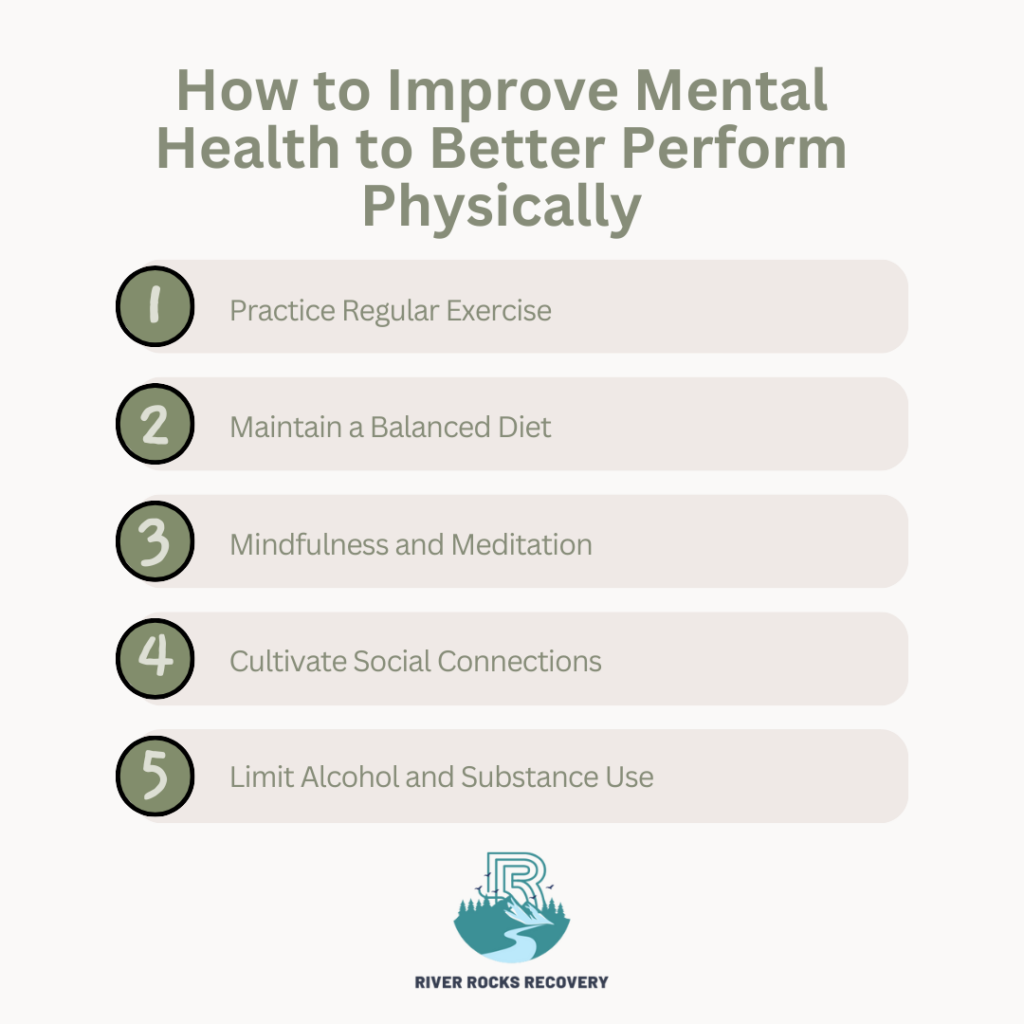When it comes to health, we frequently think of the body and mind as distinct things. However, physical and mental health are inseparably linked, with one having a significant impact on the other’s total well-being.
In this blog, let’s understand how physical and mental health are related, why maintaining both is critical and some essential tips to maintain the balance.
So, without further ago, let’s begin!
Physical and Mental Health: Know the Connection!
Please note that mind and body are not separate systems. They communicate continually. For example, when you are stressed, your body may produce physical symptoms such as headaches or muscle strain.
Physical Health Affects Mental Well-Being
Physical health plays a crucial role in mental well-being. Chronic illnesses, such as diabetes, heart disease, and obesity, can increase the risk of mental health disorders like depression and anxiety. When the body is unwell, it can lead to feelings of hopelessness and frustration, making it difficult to maintain a positive mindset.
Mental Health Impacts Physical Health
Conversely, mental health significantly influences physical health. Conditions like depression and anxiety can manifest as physical symptoms, including fatigue, pain, and a weakened immune system. Mental distress can lead to unhealthy behaviors, such as poor diet and lack of exercise, which further compromise physical health.
Stress and the Body
Chronic stress is a prime example of how mental health can affect physical health. Prolonged stress can lead to a variety of physical issues, including high blood pressure, digestive problems, and heart disease. Understanding the body’s stress response is crucial for managing both mental and physical health.
Chronic physical illnesses, such as heart disease or diabetes, can result in mental health issues such as anxiety or sadness. Let’s see how they work:
- The neurological system: Your brain transmits information throughout your body, impacting heart rate, digestion, and even immunological reactions.
- Hormonal responses: Stress and mental health difficulties can cause the release of hormones such as cortisol and adrenaline, which can have long-term repercussions on your physical health.
- Behavior Changes: Poor mental health can lead to bad behaviors that harm physical well-being, such as poor eating habits, a lack of exercise, and substance misuse.
The Impact of Physical Health on Wellbeing
Your emotional and mental well-being are directly related to your physical health. Regular exercise, a decent diet, and proper sleep are all essential components of positive mental health.
Exercise and Mental Health
Exercise has been shown to cause the release of endorphins, which are natural mood boosters. It also lowers stress hormones such as cortisol and improves sleep.
Nutrition and Brain
What you eat directly affects your mental wellness. A diet high in fruits, vegetables, lean meats, and whole grains fuels the brain and regulates mood. On the other hand, diets high in sugar, processed foods, and unhealthy fats have been related to increased anxiety and sadness.
The Role of Sleep
Sleep deprivation does more than simply make you weary. It can also make you irritable, depressed, and weakened in cognitive function. Chronic sleep deprivation is connected to a variety of mental health disorders, including anxiety, sadness, and schizophrenia.
Negative Effects of Poor Mental Health on Physical Health
Mental health issues can have a direct effect on physical well-being. Stress, worry, and depression, for example, can damage the immune system, raise inflammation, and result in chronic illnesses such as heart disease, digestive issues, and exhaustion.
Chronic stress causes a prolonged release of cortisol, which can raise blood pressure and heart rate, suppress the immune system make you more susceptible to sickness, and contribute to harmful coping mechanisms, like binge eating or substance addiction.
Moreover, people who are depressed are more likely to develop chronic medical problems like heart disease, diabetes, and stroke. Depression can also lead to bad lifestyle choices, such as inactivity, unhealthy food, and smoking, all of which increase physical health problems.

How to Improve Mental Health to Better Perform Physically
As physical and mental health are so closely related, it’s critical to maintain both. Here are some excellent tips that can help you keep a balance between the two:
- Do regular exercise or yoga.
- Eat a healthy and balanced diet.
- Take a good night (at least 8 hours) of sleep.
- Manage stress.
The Importance of Integrated Treatment Approaches
Recognizing the link between physical and mental health is vital for effective treatment. At River Rocks Recovery, we offer comprehensive Addiction Treatment Programs that address both aspects of health. By integrating physical and mental health care, we help individuals achieve a more balanced and sustainable recovery.
Key Components of Integrated Treatment:
- Holistic Approaches: Our Mental Health Therapy in Ohio includes a variety of holistic practices that focus on the whole person, addressing both mind and body.
- Physical Health Assessments: We conduct thorough physical health assessments to identify any underlying conditions that may be affecting mental health. This ensures that all aspects of a person’s health are considered in their treatment plan.
- Personalized Therapy: Our Addiction Therapy Programs utilize tailored therapeutic approaches that incorporate both mental and physical health strategies. This includes therapies such as Cognitive-Behavioral Therapy (CBT) and Dialectical Behavior Therapy (DBT), which are effective in addressing the psychological aspects of addiction.
- Nutritional Support: Understanding that diet plays a vital role in both physical and mental health, we provide nutritional guidance to help clients make healthier choices that support their recovery journey.
- Physical Activity: Regular exercise is an essential component of mental health. Our programs encourage physical activity as a means to enhance mood, reduce stress, and improve overall well-being.
Looking for Professional help? Get in Touch with River Rocks Recovery!
If you’re searching for a professional mental health treatment center then, give us a call right now! We, at River Rocks Recovery know the significance of treating both mental and physical health. Our comprehensive programs are intended to promote your entire well-being. Schedule your appointment today!
Treatment Options at River Rocks Recovery
At our Addiction Treatment Center in Ohio, we offer a variety of treatment options tailored to individual needs:
- Outpatient Program (OP): Outpatient Treatment Program flexible program allows clients to receive care while maintaining daily responsibilities, ensuring support for both physical and mental health needs.
- Intensive Outpatient Program (IOP): Intensive Outpatient Program provide more structured approach that provides a higher level of care, ideal for individuals needing additional support during their recovery.
- Partial Hospitalization Program (PHP): Partial Hospitalization Program offers intensive therapeutic support during the day while allowing clients to return home in the evenings, facilitating a balanced approach to treatment.
Conclusion
Understanding the connection between physical and mental health is essential for achieving comprehensive well-being. At River Rocks Recovery, we recognize that both aspects must be addressed for effective recovery from addiction and mental health disorders. By offering integrated Mental Health Treatment Center in Ohio, we empower individuals to take charge of their health and work towards a balanced, fulfilling life. Call us today at: (888) 905-6281 to know more about our services.
FAQ: The Connection Between Physical and Mental Health
How are physical and mental health connected?
Physical and mental health are deeply intertwined. Poor physical health can lead to mental health issues like anxiety and depression, while mental health conditions can manifest as physical symptoms, such as fatigue and pain. Maintaining a balance between the two is crucial for overall well-being.
Can chronic stress impact physical health?
Yes, chronic stress can lead to various physical health problems, including high blood pressure, heart disease, and digestive issues. It’s important to manage stress effectively to protect both mental and physical health.
What are the signs that my mental health is affecting my physical health?
Common signs include persistent fatigue, changes in appetite, unexplained physical pain, sleep disturbances, and a weakened immune system. If you notice these symptoms, it may be time to seek help.
How can integrated treatment help with addiction and mental health issues?
Integrated treatment addresses both physical and mental health simultaneously, providing a comprehensive approach to recovery. By focusing on holistic practices, personalized therapy, and physical health assessments, individuals can achieve better outcomes.
What types of therapy are included in addiction treatment programs?
At River Rocks Recovery, we offer therapies such as Cognitive-Behavioral Therapy (CBT) and Dialectical Behavior Therapy (DBT). These approaches help clients address the psychological aspects of addiction while also focusing on physical well-being.
What is the role of nutrition in mental health?
Nutrition plays a significant role in mental health. A balanced diet can enhance mood, reduce anxiety, and improve overall well-being. At River Rocks Recovery, we provide nutritional guidance to support clients’ recovery journeys.
How does physical activity benefit mental health?
Regular physical activity is known to release endorphins, which can improve mood and reduce stress. It also promotes better sleep and overall physical health, making it an essential component of a balanced recovery plan.




























